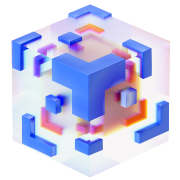AI & Blockchain: Use Cases for Complementary Technologies

Kevin Dwyer
October 31, 2023
11 min read
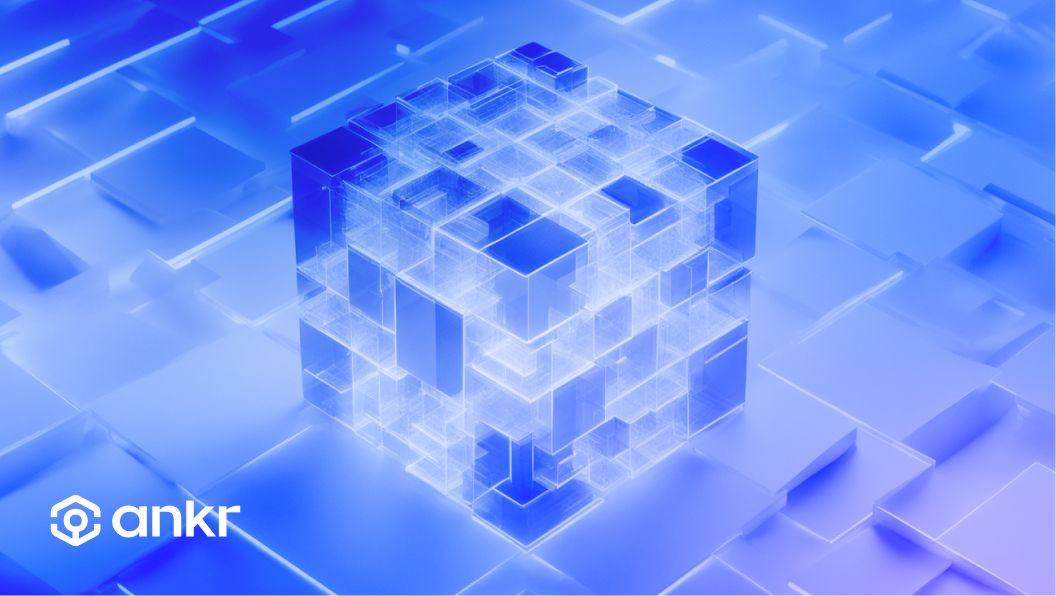
Early this year, the hype around artificial intelligence became an unstoppable force as mysterious new projects like Open AI made headline after headline. The immediate promise of the new technology was recognizable to most as they found applications for applying generative AI right away. Creating articles, images, videos, translations, and code was just the tip of the iceberg; the new technology seems ready to take on a massive amount of work we do as humans. The subject of science fiction for decades, the maturation of AI stole the spotlight away from the tech favorite of the past few years – blockchain. However, blockchain and AI combined present opportunities for innovation stronger than either can accomplish alone.
“Blockchain and AI have a symbiotic relationship. Blockchain brings trust to data; AI feeds on data. On the other hand, AI brings intelligence to data; blockchain has ledgers containing data. With trust and intelligence, you have confidence. With confidence, you gain adoption.”
– Jerry Cuomo, VP of AI Automation at IBM
While AI and blockchain are distinct technologies, they have the potential to be used together to create powerful new applications. AI can be used to improve the performance and scalability of blockchain networks, while blockchain can be used to secure AI systems and data.
Let’s take a look at some of the most pertinent use cases being explored by the tech industry:
Proof of Personhood

Source: 21st Century Chonicle
“The big techno-political questions of the 21st century just get decided by whatever happens in AI over the next decade.”
– Vitalic Buterin via Decrypt
As the massive impact of artificial intelligence settles in, the first thought many had (including Elon Musk and Sam Altman) is how we can prevent such a powerful tool from unleashing formidable capabilities in the wrong ways. The incredible benefits of using AI are the outcome of well-meaning and responsible people. However, what happens when the wrong hands utilize AI? What if AI goes rogue with its own malicious goals? Already, it can be challenging to distinguish between AI-generated content, photos, and video and the real deal. Blockchain can help verify, authenticate, and differentiate the real from the artificial.
-
Creating a verifiable human digital identity: Blockchain can be used to create a verifiable human digital identity that can be used to prove that a person is real and not a bot. This could be done by using biometric data, such as fingerprints or iris scans, or by using other data that is unique to individuals, such as social security numbers or government-issued IDs.
-
Detecting deepfakes and other AI-generated content: Deepfakes are videos or audio recordings that have been manipulated to make it appear as if someone is saying or doing something they never said or did. Other AI-generated content, such as text and images, can also be difficult to distinguish from human-generated content. Blockchain can be used to create decentralized systems for authenticating content made by humans while detecting AI-generated content.
-
Protecting against Sybil attacks: Blockchain and AI can be used to build trustless reputation systems that can help to identify and prevent Sybil attacks. For example, a blockchain-based reputation system could track the behavior of users over time and give them a reputation score based on their past interactions. Users with a high reputation score would be given more weight in decision-making processes, while users with a low reputation score would be given less weight. This would make it more difficult for Sybil attackers to influence the outcome of votes or other decisions.
Machine-to-Machine Payments
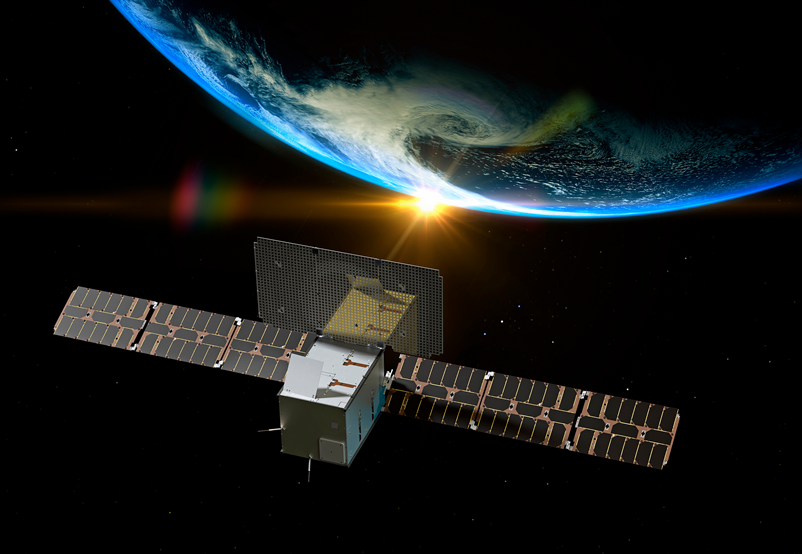
Source: JP Morgan Chase: Launching Blockchain in Space
“The server farms going up in space are getting paid in crypto, because there is no sovereign state and no payment rails – crypto payment rails belong to everybody.”
– Raoul Pal on Overpriced JPEGs
Artificial Intelligence is expected to revolutionize the current Machine-to-Machine (M2M) and Internet of Things (IoT) spaces. As “smart” devices become truly intelligent, they will be able to transact on behalf of humans as personal “assistants” or “agents” much more effectively. The convergence of blockchain and AI can revolutionize the Machine to Machine (M2M) payments landscape in a number of ways, including:
-
Instantaneous efficiency: Blockchain can automate and streamline M2M payments, eliminating the need for intermediaries and reducing transaction costs. AI can further improve efficiency by optimizing payment routing and detecting and preventing fraud.
-
Reduced costs: Blockchain can help to reduce M2M payment costs by eliminating intermediary fees and reducing the need for manual processing. AI can further reduce costs by optimizing payment routing and detecting and preventing fraud.
-
Improved security: Blockchain's distributed ledger technology makes it a secure and tamper-proof platform for M2M payments. AI can further improve security by detecting and preventing fraud.
-
New payment models: Blockchain and AI can enable new and innovative payment models for M2M transactions. For example, AI-powered smart contracts could be used to create dynamic pricing models that adjust based on real-time data.
AI-Powered Smart Contracts
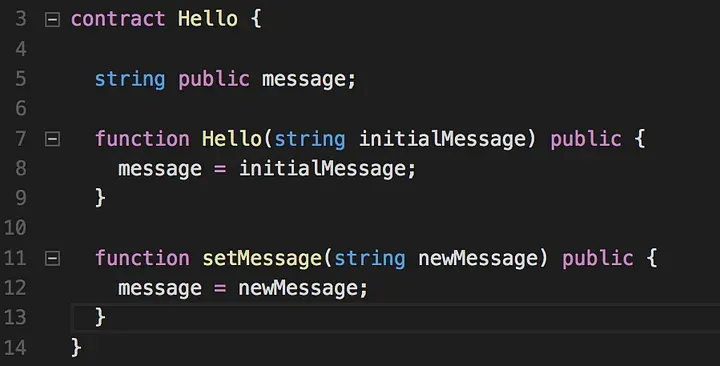
“AI is indefinite abundance and crypto is definite scarcity. Both are important.”
– Sam Altman on X
AI-powered smart contracts have the potential to revolutionize the blockchain industry in a number of ways, including:
-
Making smart contracts more intelligent and adaptive: AI can be used to endow smart contracts with the ability to understand and respond to complex and nuanced situations. For example, AI-powered smart contracts could be used to create dynamic insurance policies that automatically adjust premiums based on real-time risk factors, or to create supply chain management systems that can optimize inventory levels and shipping routes based on changing market conditions.
-
Improving the security and reliability of smart contracts: AI can be used to identify and mitigate potential security vulnerabilities in smart contracts. For example, AI-powered smart contracts could be used to detect and prevent fraudulent transactions, or to ensure that smart contracts are always executed in accordance with their intended purpose.
-
Reducing the cost and complexity of developing and deploying smart contracts: AI can be used to automate the process of developing and deploying smart contracts. This could make smart contracts more accessible to a broader range of businesses and individuals.
Next-Generation Business Automation
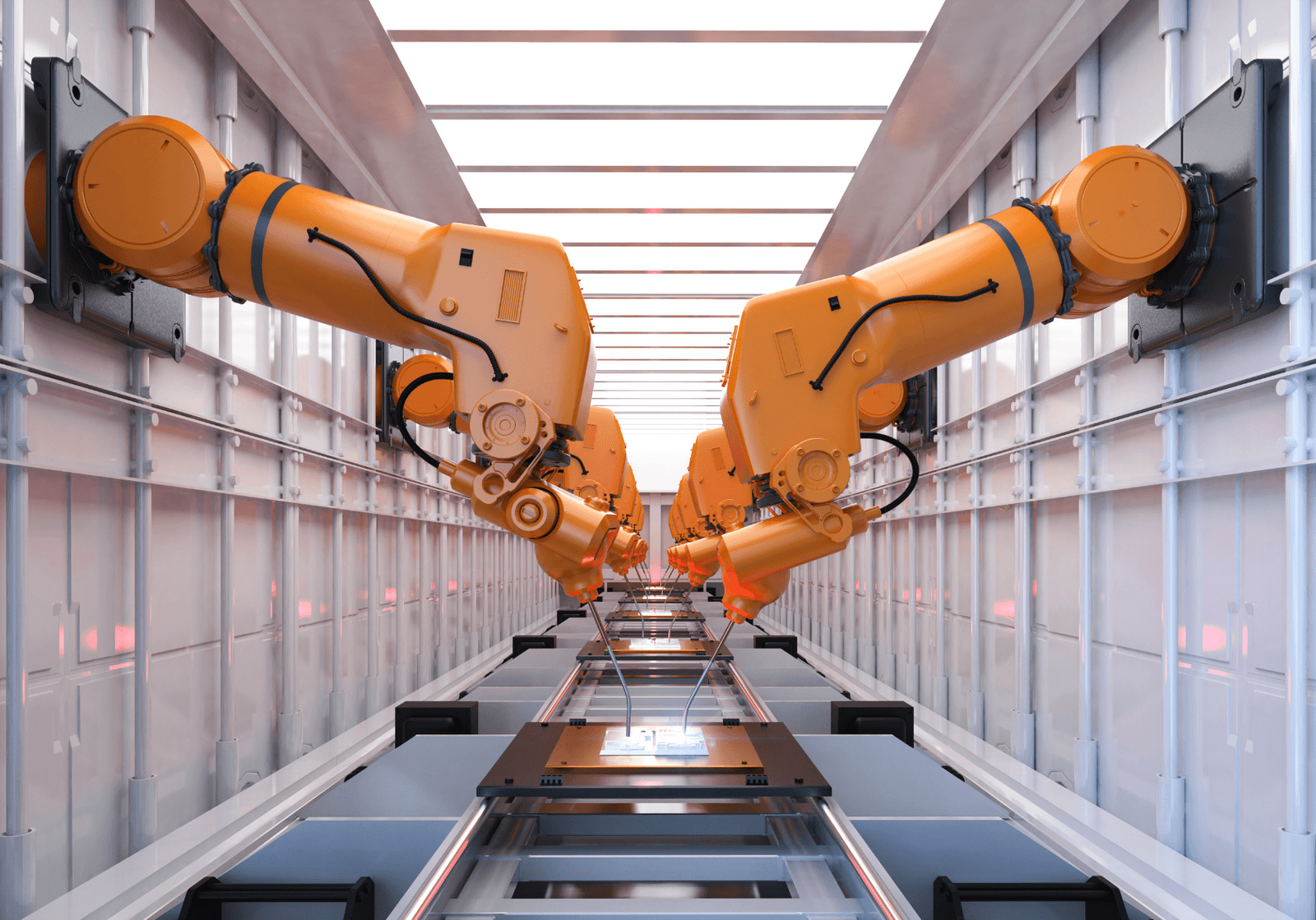
“The tech scene has witnessed convergence on a grand scale before, like the internet and the smartphone, which made the sharing economy work. Now we’re seeing AI and Web3 in the baby steps of working together.”
– Josh Neuroth, Ankr’s Head of Product via Interop 2023
Artificial intelligence and blockchain’s convergence will usher in a new era of business automation. AI can automate tasks, learn from data, and make predictions, while blockchain provides a secure and tamper-proof platform for transactions and data sharing. Together, AI and blockchain have the potential to revolutionize business processes in a wide range of industries, from the supply chain to financial services to healthcare.
Supply chain
Transparency: Blockchain can provide transparency to supply chains by tracking the movement of goods from farm to fork. This can help to reduce fraud and corruption, and it can also help to improve communication and collaboration between different stakeholders.
Efficiency: AI can help to improve the efficiency of supply chains by automating tasks, optimizing processes, and making better decisions. This can help businesses to save time and money, and it can also help to improve customer satisfaction.
Innovation: Blockchain and AI can enable new business models and innovations in supply chains. For example, blockchain can be used to create decentralized marketplaces for goods and services. AI can be used to develop new products and services, such as predictive maintenance and personalized delivery.
Financial Services
Security: Blockchain can improve the security of financial services by providing a tamper-proof ledger for transactions. This can help to reduce fraud and protect consumers from financial crime.
Access: Blockchain can make financial services more accessible to people in developing countries and other underserved populations. This is because blockchain does not require a central authority or a bank account.
Efficiency: AI can help to improve the efficiency of financial services by automating tasks, optimizing processes, and making better decisions. This can help financial institutions to reduce costs and improve customer service.
Healthcare
Privacy: Blockchain and AI can help to protect the privacy of healthcare data by providing a secure way to store and share data. This is important because healthcare data is sensitive and can be used for identity theft and other forms of fraud.
Accuracy: AI can help to improve the accuracy of healthcare by developing new diagnostic tools and treatment plans. AI can also be used to personalize care for individual patients.
Efficiency: Blockchain and AI can help to improve the efficiency of healthcare systems by automating tasks, optimizing processes, and making better decisions. This can help hospitals and other healthcare providers to reduce costs and improve patient care.
Upgrades to Blockchain Technology
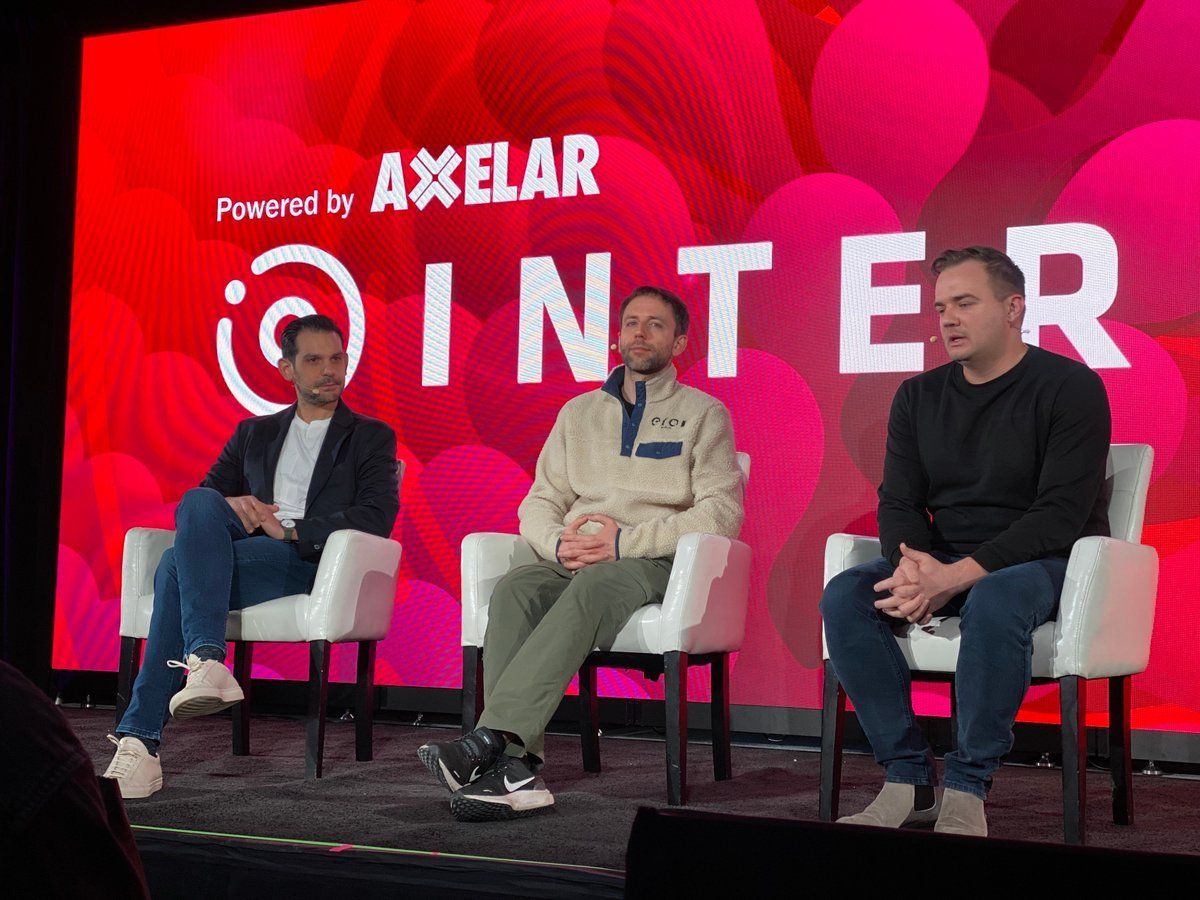
Representatives from Microsoft, Ankr, and Matter Labs discuss the future of Web3 and AI at Interop 2023.
Blockchain tech itself is notoriously hard to build. AI can help blockchain overcome its most difficult challenges, such as scalability, security, interoperability, and privacy. This can make blockchain more efficient, secure, user-friendly, and widely adopted.
-
Scalability: Blockchain networks can currently only process a limited number of transactions per second. AI can be used to develop advancements to scaling solutions, such as sharding and off-chain computation, that can increase the throughput of blockchain networks without compromising security or decentralization.
-
Security: Blockchain networks are vulnerable to a number of security threats, such as hacks and denial-of-service attacks. AI can be used to develop new security solutions, such as anomaly detection and intrusion prevention systems, that can help protect blockchain networks from these threats.
-
Interoperability: Different blockchain networks are currently not very interoperable, meaning that it is difficult to transfer assets and data between them. AI can be used to develop new interoperability frameworks that make it easier to transfer assets and data between different blockchain networks.
-
Privacy: Blockchain transactions are transparent by default, which can be a privacy concern for some users. AI can be used to develop new privacy-preserving technologies, such as zero-knowledge proofs and homomorphic encryption, that can allow blockchain users to conduct transactions without revealing their identity or financial information.
Current Blockchain X Artificial Intelligence Projects
Worldcoin: “The rapid advancement of artificial intelligence has accelerated the need to differentiate between human- and AI-generated content online.” That is the gist of Worldcoin’s purpose given on its site. Worldcoin is a new cryptocurrency and digital identity platform that aims to provide everyone on Earth with a unique digital identity. It was founded in 2019 by OpenAI CEO Sam Altman, Max Novendstern, and Alex Blania, and is backed by VC Andreessen Horowitz.
IBM: Far from the startup world, International Business Machines has had no trouble with defining its own use cases for blockchain and AI together. IBM has an entire section of its website dedicated to the convergence of blockchain and AI, explaining the unique benefits provided in authenticity, augmentation, and automation stemming from the symbiotic relationship between AI and blockchain.
Fetch.ai: A decentralized AI platform that enables the development and deployment of AI agents. It is powered by the Ethereum blockchain, which allows AI agents to interact with each other and with the real world in a secure and transparent way. Fetch.ai aims to create a new economy where AI agents can provide services to humans and other AI agents in a decentralized and autonomous manner. This economy is envisioned to be more efficient and equitable than the traditional economy, as it will not be reliant on centralized intermediaries.
Build the Future of Blockchain and AI With Ankr
Since Ankr’s founding, we have been dedicated to providing infrastructure for every layer of the blockchain ecosystem.
-
RPC API Connections to every chain possible: Ankr is building the future of distributed Web3 infrastructure, servicing dozens of Proof-of-Stake chains with an industry-leading global node delivery system, RPC aggregator, and suite of multichain development tools. Ankr currently serves over 2T transactions a year across Web3 and is the main infrastructure provider for BSC, Fantom, and Polygon chains as of 2023.
-
Blockchain scaling Services: Ankr empowers developers by providing complete blockchain services for every team. Ankr offers a diverse range of options for launching your blockchains with customizability at every level for infrastructure built around your application. As the approved infrastructure partner for building app-specific blockchains on ecosystems like the BNB Smart Chain, Polygon, Avalanche, and zkSync, Ankr simplifies blockchain development for all use cases. Ankr creates blockchains for projects while satisfying every requirement for infrastructure and engineering like validators, RPC nodes, block explorers, testnets, staking platforms, and more for completely custom blockchain solutions.
-
Innovative validation solutions: Ankr creates next-generation solutions for supporting validation on 9+ proof-of-stake chains with an industry-leading node delegation system and security. With a Total Value Locked of over $500M, Ankr is the 3rd largest Ethereum staker and go-to staking infrastructure provider for ecosystems like the BNB Smart Chain, Polygon, and more.
Final Thoughts
The convergence of blockchain and AI is a powerful combination with the potential to revolutionize many industries. AI can help to make blockchain more efficient, secure, and scalable, while blockchain can help to secure AI models and data. As these two technologies continue to develop, we can expect to see even more innovative and groundbreaking applications emerge.
Join the Conversation on Ankr’s Channels
Twitter | Telegram Announcements | Telegram English Chat | Help Desk | Discord | YouTube | LinkedIn | Instagram | Ankr Staking



